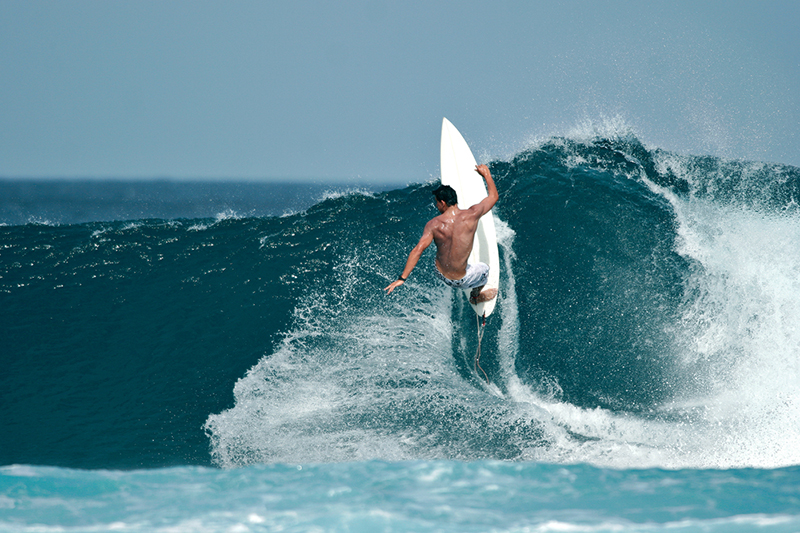Don’t worry. This isn’t going to be an article that gives you five reasons why you should stop surfing. It’s about a study at Bond University that’s looking at how to prevent bone deterioration by studying the habits of surfers.
It aims to document the bone health of mature-aged surfers. This will determine if long-term surfing has a negative effect on bone density.
The research team is even offering free health checks to men aged between 50 and 75. They need to regularly surf and live on the Gold Coast, in return for participating in the study.
“Surfers spend an average of only three minutes in every hour actually surfing a wave. For example, paddling or sitting on the board,” head researcher Doctor Vini Simas said in a press release.
“This suggests that those participating in this aquatic activity may have an imbalance between bone reabsorption and bone production activity. This can present the risk of premature osteoporosis and increased risk of fractures,” he said.
Bone health a “major health problem”
Participants will have to answer questions about their physical activity and current calcium intake. They will also need to undergo a standard diagnostic test. This will allow them to get an accurate assessment of bone health and body composition.
“Age-related bone deterioration is a major health problem concerning mature-aged men. It is also a principle concern for clinicians,” Dr Simas said.
“Right now, the bone health of surfers is unclear so we want to study this cohort to determine if they are more susceptible to the premature development of osteoporosis.
“The outcomes of the investigation into the long-term effects of surfing on bone health will determine whether preventative measures and recommendations are needed to reduce the risk of bone deterioration,” he said.
Volunteers also needed for surfer’s ear study
According to the Mayo Clinic, surfer’s ear (also known as swimmer’s ear) is an infection in the outer ear canal (the part that runs from your eardrum to the outside of your head).
It’s often brought on by water that remains in your ear after swimming, creating perfect conditions for bacterial growth. It can be a painful and cause balance problems, hearing loss and chronic ear infections.
“If left undetected and untreated severe cases of surfer’s ear can require surgery. This involves going under the skin and drilling into the bone,” Dr Simas said.
Most surfers don’t realise they have the condition however if it detected early treatment can be simple.
“According to a Victorian study, 87 per cent of male surfers and 69 per cent of female surfers have some degree of surfer’s ear,” Dr Simas said.
“At the Quiksilver Pro Gold Coast last year, I assessed 10 top male and five top female surfers. It was revealed that every one of them suffered from surfer’s ear.
“We want to get as many participants involved as possible to raise awareness and investigate causes and preventative measures for the condition.”
To sign up to participate in either of the studies you can contact Dr Simas on [email protected] or 0405 617 133.





